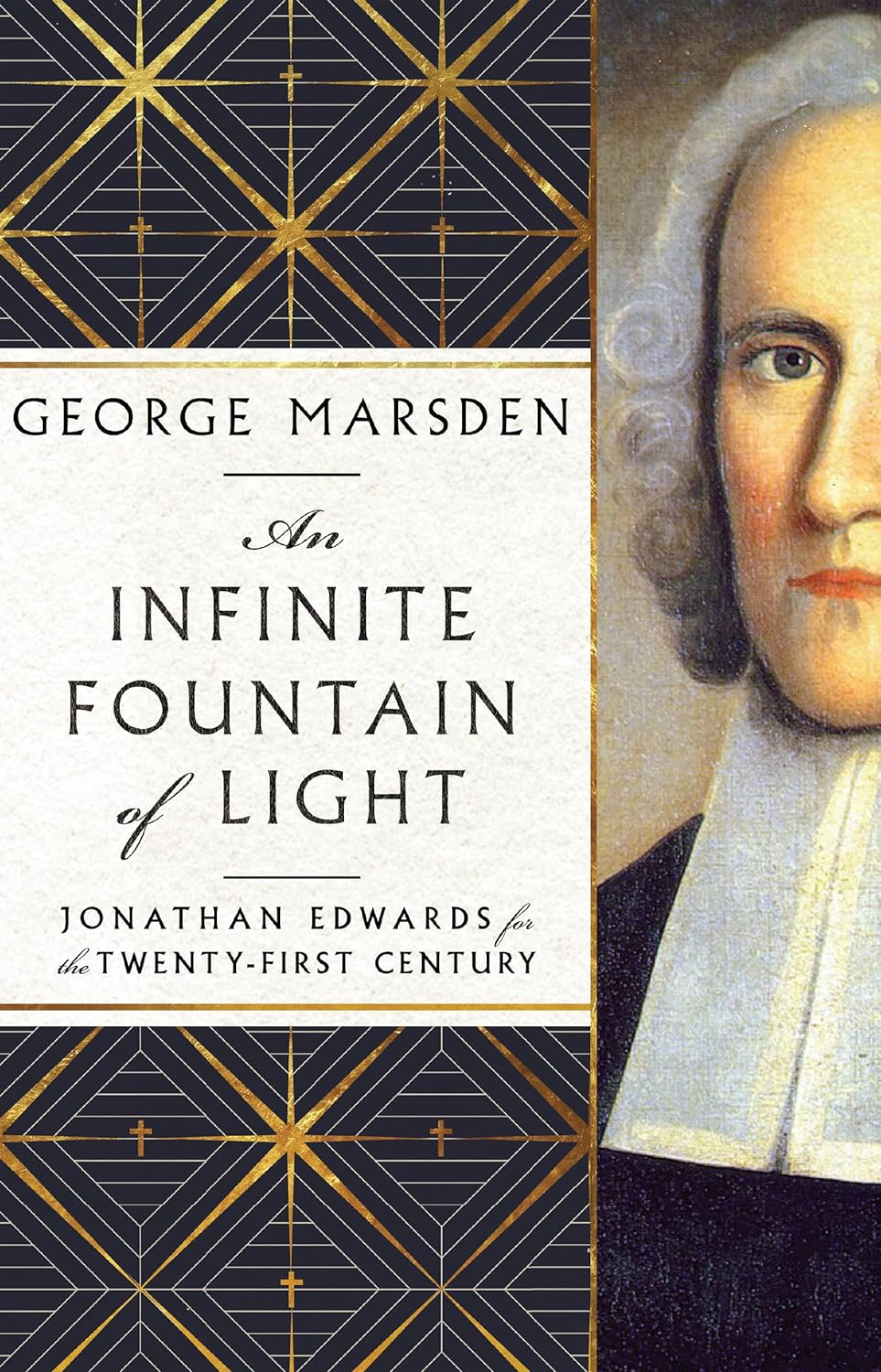A Book Review from Books At a Glance
by Ryan M. McGraw
George Marsden has become a household name in Jonathan Edwards studies. Having written a gripping definitive biography of Edwards (and a shorter one), Marsden is also noted for defending objective historical writing, seeking to understand historical people in their own times and contexts. This trajectory led to debates between Marsden and other evangelicals who favored drawing lessons directly from history while pulling back from academic historical methods, searching for exemplary people and extraordinary instances of divine providence. This backdrop makes this present volume particularly interesting. Marsden displays his skill as an analyst of historical and contemporary culture at its strongest, drawing insights from key aspects of Edwards’ thought to engage and challenge modern evangelicalism. Readers will find here an exemplary use of contextual history put in the service of the church, without transforming a historical figure like Edwards into a person speaking with a modern Reformed accent.
Readers may be surprised by what they find in reading Marden. This reviewer expected to encounter a seasoned Christian historian’s insights into striking points of Edwards’ theology by putting him into modern language. While the author does this to an extent, especially in his final chapter, he provides his audience with something much deeper and more valuable. After establishing Edwards’ historical context briefly in chapter one, the following four chapters alternate between building historical trajectories from Edwards’ time to our own, and key ideas in Edwards’ writings that stand in salutary contrast with the modern world. Accordingly, chapter two contrasts Edwards’ and Benjamin Franklin’s views of the world. While Edwards saw the Triune God at the heart of reality, expecting world-wide revival and overwhelmingly successful evangelism by the year two-thousand, Franklin would have recognized our modern world in ways that Edwards would not. Franklin’s emphases on the self-made man, his progressive sexual ethics, his penchant for technology, and especially his Deist belief that God exists as the first cause of the world with little practical relevance for daily life, would fit in well in today’s American and even evangelical culture. However, the dark side of this trajectory is the depersonalization and isolation of humanity within broader society. Chapter three, in turn illustrates that Edwards’ views of the beauty of the Triune God standing behind creation, providence, and redemption as potentially repersonalizing humanity, drawing people together in communion with God in harmony with one another and their world. Chapters four and five follow a similar pattern. The former illustrates the increasing stress on the individual in churches following the first Great Awakening, with Edwards’s judicious intervention in providing criteria for evaluating true and false religious affections and experiences. In other words, individual religious experience has its limits.
Leaving evaluation for the final chapter, Marsden then explains and expands on Edwards’ marks of false religious experience and especially his twelve marks of genuine religious affections, aiming ultimately at ordering our loves well. Among other things, he uses Edwards’ push against individualism and combativeness, which often characterize modern Reformed evangelicalism, to recenter the church on the beauty of the Triune God, producing gentle and humble spirits in us. Marsden’s way of reasoning results in a piercing analysis of modern evangelical Christianity, drawing lessons from contrasting touch points in Edwards’ writings, without transforming him into an other-worldly (and unrealistic) superman. The concluding appendix is an Edwards sermon, “A Divine and Supernatural Light,” which Marsden calls “Edwards’s greatest sermon and is the best place to start in reading Edwards himself” (66), and which caps off the book well by letting Edwards have the final word.
Highlighting a few wise gems from the book will likely best give readers a feel for its valuable insights. For example, noting that we are often blind to the weaknesses of our own times, he writes, “Looking to the most profound insights of Christians from another era can be an especially helpful way to gain perspective on our own needs in our own era” (3). Also, not sidestepping what a modern audience might view as flaws in Edwards, he wisely observes, “If we did not accept the principle that we can learn profound things from people who have serious flaws and inconsistencies, then we could not learn from anyone – excepting Jesus. And no one could learn from us” (15). Similarly, both critiquing and appreciating aspects of modern and older thought, he states, “Even the greatest human accomplishments typically have paradoxical downsides” (89). Finally, his treatment of theological humility and charity towards others as a necessary corrective to the brashness of many evangelicals today is judicious and timely (121-125). Though readers will discover much more than good quotes in this volume, Marsden is not lacking in quotable material amidst a tightly knit gripping narrative.
Marsden’s little book is readable, relevant, and compelling. His skill as an intellectual and cultural historian actually enhances rather than diminishes his use of Edwards’ vision of the beauty of the Triune God for today’s church. Sometimes what the church needs most is hearing historical Christian voices in all their strangeness with all their shortcomings rather than seeking heroes that match and bolster our modern Christian ideals. Perhaps older authors like Edwards have unexpected blessings to offer precisely because they thought so differently than we do. In this reviewer’s opinion, this is a better model for gleaning lessons from church history than depicting near seraphic heroes with otherworldly (and unreachable) levels of piety. In short, Marsden illustrates both the need for contextual history, raising and answering historical questions rather than contemporary ones, and the real payoff that historical studies can offer to today’s church.
Ryan M. McGraw
Greenville Presbyterian Theological Seminary
